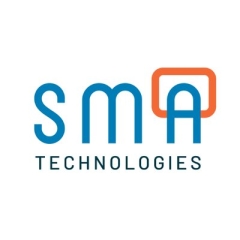What is our primary use case?
We use it to automate multiple platforms: our mortgage platform, our core platform, and other instances where we're working with third parties to whom we have to move data. It does about 90 percent of our automation. Very rarely do we do anything that's not automated. For example, we do not manually upload anything. It's all done through OpCon.
How has it helped my organization?
The biggest improvement is the batch automation. We don't do anything manually anymore; everything is automated. We did have a very highly skilled employee and the job he left for was a job with a bigger credit union to run their OpCon shop. That's how good he became at it. His skill set was at a very high level, where he automated up to 90 percent of what we do. We very rarely have to manually upload.
We've automated about 50 to 60 processes, and that number is growing. We are adding on our mortgage platform to automate that. And that number does not include the OpCon buttons they also use for on-demand stuff.
It has also helped to streamline our operations. We contract out our collection department so they are no longer housed on our system. They're housed on another platform. OpCon is able to not only pull in our data, but it also, on a daily basis, updates that third-party. In addition, if there are any updates coming back, OpCon will check on a daily basis and send it back. That's just a sample of how it automates.
Another example is how we automate our daily FedLine. The most important job files that we run are our ACH, our Federal postings for credits and debits. We totally automated that where there is no longer any manual intervention. We upload the Fed file; it comes in and OpCon is smart enough to know where to place it and how to run the edits. It's also smart enough to know that there are delay times. Before OpCon, we were posting them the next day, manually, one after the other, because there are four to five that come in and out throughout the day. Because we were able to automate it through OpCon, we can now post them when they actually come in. They are posting throughout the day now. For example, at 12 in the morning there is our major posting, and it's posted right when it should be. Members are actually getting their paychecks or debits and credits right when they should happen. That was a big one which was very member-impactful.
OpCon has also freed up employees to do more meaningful work as a result of automation. They're not having to go into Symitar and run a job. Instead, they can simply run something. They've also found innovative ways to use it as well: "Hey, I have this thing that produces an Excel file. Can OpCon just grab it and send it out to this other vendor for me?" And the answer is, "Sure, that's not a problem." Our employees are thinking outside the box, as far as utilizing it goes. Even though they don't generally know OpCon, they know what it's capable of. In some cases, they're building their own little building blocks of automation themselves.
The main employees who have been freed up are in our accounting, item-processing, and lending departments. In those three departments there are about 15 employees. All depend on OpCon to do something for them. We're not that big of a shop. We have about 100 employees in total.
Our employees expect automation now. Prior to that, it was nice to be able to run something and for them to get their data. It was awesome. Now, as they know that it's a standard process, they're not as excited. They just expect it now. If you would tell them: "Oh, no, you have to manually move this from here to there," they would probably come back and say "Wait a minute, my other thing is automated. Why can't this be?"
If we're counting all the manual intervention, as a percentage, I would say that OpCon has reduced data processing by 90 percent, through automation, the efficiency, and the eliminating of manual errors.
What is most valuable?
There are a lot of areas that are valuable. Perhaps the most valuable would be the OpCon button that users can select so that instead of having users going into Symitar, they can now just run an OpCon button that works on-demand. That's probably the one that has made the biggest impact. We no longer have users running job processes in Symitar. Everything that they need, we simply have them run on-demand, so there's no access into Symitar. That is one of the most valuable tools we have. Obviously, the batch-automation is a big one, but that button functionality would be the biggest feature.
What needs improvement?
Usage is a little complex. It's not like you can bring somebody in and they can just use it. They have to be trained. Our main OpCon person left and it's a lot harder for a lot of people. Once you have somebody leave, the next person has to step up and it is a little difficult. As far as complexity goes, it's right up there.
Once you get to know the platform, you do know how to troubleshoot. But there's just so much to learn. If you are properly trained, it is fairly easy to figure out problems and troubleshoot. SMA does offer certification and they also offer consulting hours, which we are using right now.
There is always a percentage of jobs where the batch automation doesn't work or something critical happens within the OpCon server that causes something to stall, and we have to troubleshoot.
Another area for improvement is within the notification and alerts. I'd like to see it get smarter with script-writing within OpCon to make it do more. There is some room for improvement there and that's why we got the consulting hours.
For how long have I used the solution?
We've been using OpCon for the last five years.
What do I think about the stability of the solution?
The stability, on a scale of one to 10, is about a seven. We are having some issues with logs. We did reach out to OpCon, but they didn't have a solution for that, so we're having to manually handle that on a daily basis. That was a little disappointing. I'm hoping that one day they will have a list-serve where we can reach out to other OpCon shops. That way, we can reach out to other OpCon users who have a high level of OpCon skills and say, "Hey, we ran into this problem. How did you guys figure your way out of it?"
What do I think about the scalability of the solution?
It's pretty scalable. It can go virtual. They have a lot of options. Right now we are on-prem, but we would definitely look at going off-prem and having it hosted in the future. That's what we'd like, and they do offer that capability. They also offer managed services, which is something we're going to target in the near future, simply because we're a small shop. so they do offer a variety of things that we could definitely take advantage of.
We only have one user using OpCon because the main one left. She is training our other two who are brand-new; they are literally brand-new, even to IT. We are very shorthanded right now. That is why we bought the consulting hours, so that we could get these other two up to speed.
Similarly, only one person is doing maintenance of the solution, which is why we're going to contemplate shifting over to OpCon's managed services. That kind of solution is probably a perfect remedy for a shop like ours. I wouldn't be surprised if, this time next year, we're not even managing it and that they are.
How are customer service and technical support?
When we had the log problems they weren't very helpful on that. It felt that it wasn't a very helpful solution. From eight to five, they will help. They have some really good people. But if there are really complex problems like the logs, it feels like the front-line support doesn't know, or at least didn't on that one occasion. Thankfully, our network guys figured out the problem. Otherwise, we would have been out of luck. I'd rate technical support at six out of 10.
Which solution did I use previously and why did I switch?
We didn't have a previous solution. We were doing things manually.
How was the initial setup?
I didn't participate in the setup, but I believe that it was straightforward. OpCon came onsite for training and it seems that soon after my staff got the training they took the ball and ran with it. They got the building blocks in the training and, after that, they caught on fairly well and were able to start automating a lot of the manual processes, one by one.
For the implementation, we had to load the server and we had to have a backup for that OpCon server, which goes out to our Branson site. Any changes to OpCon get passed on. But when OpCon come onsite, they pretty much got everything loaded for us. We were paying them to do that, which is what I would recommend to anybody. It helped us, a company that was brand-new to it, to bring us into it. When they were onsite they handled 90 percent of it.
It wasn't long after the deployment that we automated the first process. Within a week we were already automating some things that we had been manually moving over. And then we road-mapped big ones like the ACH stuff that I mentioned elsewhere. One of our first projects was automating our ACH to the Feds. We had an idea of what we wanted to do once it was implemented.
What was our ROI?
We have definitely seen a return on investment. The big return on investment was the fact that we lost three OpCon people from our staff and nobody even knew that we had. We went on without skipping a beat. We literally had the worst-case scenario that can happen to an IT staff and we came out smelling like a rose. Everything ran and we were able to continue with a small staff and we did not have to worry about our batch automation.
What's my experience with pricing, setup cost, and licensing?
Yearly, it's around $30,000.
We bought consulting hours for a year at an additional cost. We're getting 85 hours a year for consulting to help us through, for example, with a complex process that we want to get done. Some of those hours might be spent for them to actually come onsite and give one-on-one training to some new people being introduced to OpCon.
Which other solutions did I evaluate?
We looked at two other vendors. It's been a long time so I don't remember their names. They were enticing because they were definitely a lot lower in cost, but ultimately OpCon had more of a service to provide. OpCon offered more services and more automation. It was a no-brainer after we learned that.
What other advice do I have?
Do your homework. Definitely look at other vendors and consider your staff size. In our case, because we have a small staff, we don't have a lot of programmers. We don't have the luxury of having 10 programmers who can write their own batch scripts. If you're a small shop like us, really do your homework on it because, in the end, if you rely on somebody writing batch scripts to do things and they ultimately leave, you own that. You really need to make sure about your road-mapping. Are your employees going to stay at the credit union? If they are, that that makes a big difference.
What happened to us was that we lost two valuable OpCon employees within a span of two months who knew how to solve OpCon problems. The third person, who was average but knew it, went down with an ankle injury for a month-and-a-half. We had nobody who knew OpCon for almost two months. The only thing that saved us was that the process was so automated that we didn't have a problem, thank goodness. Everything just ran and we never had an issue.
You have to know your staff; you have to know whether they're content. Are they going to be staying? If you know they're going to leave, you better plan ahead. You don't want to get caught like we did.
But our situation tells you how well OpCon is programmed.
The biggest lesson I have learned from using OpCon is that we have to stay on top of the releases. Every year there are software releases that you have to get done. They are key. But there are also updates, SLAs that come out. We definitely try to keep on top of that because our batch automation is a critical platform. So it's critical that we make sure that everything is up to date. The SQL portion of that is also important. We also use third-party FTP software and that is another thing that we've got to make sure is up to date. It's a definitely a solution with moving parts.
Which deployment model are you using for this solution?
On-premises
Disclosure: PeerSpot contacted the reviewer to collect the review and to validate authenticity. The reviewer was referred by the vendor, but the review is not subject to editing or approval by the vendor.











